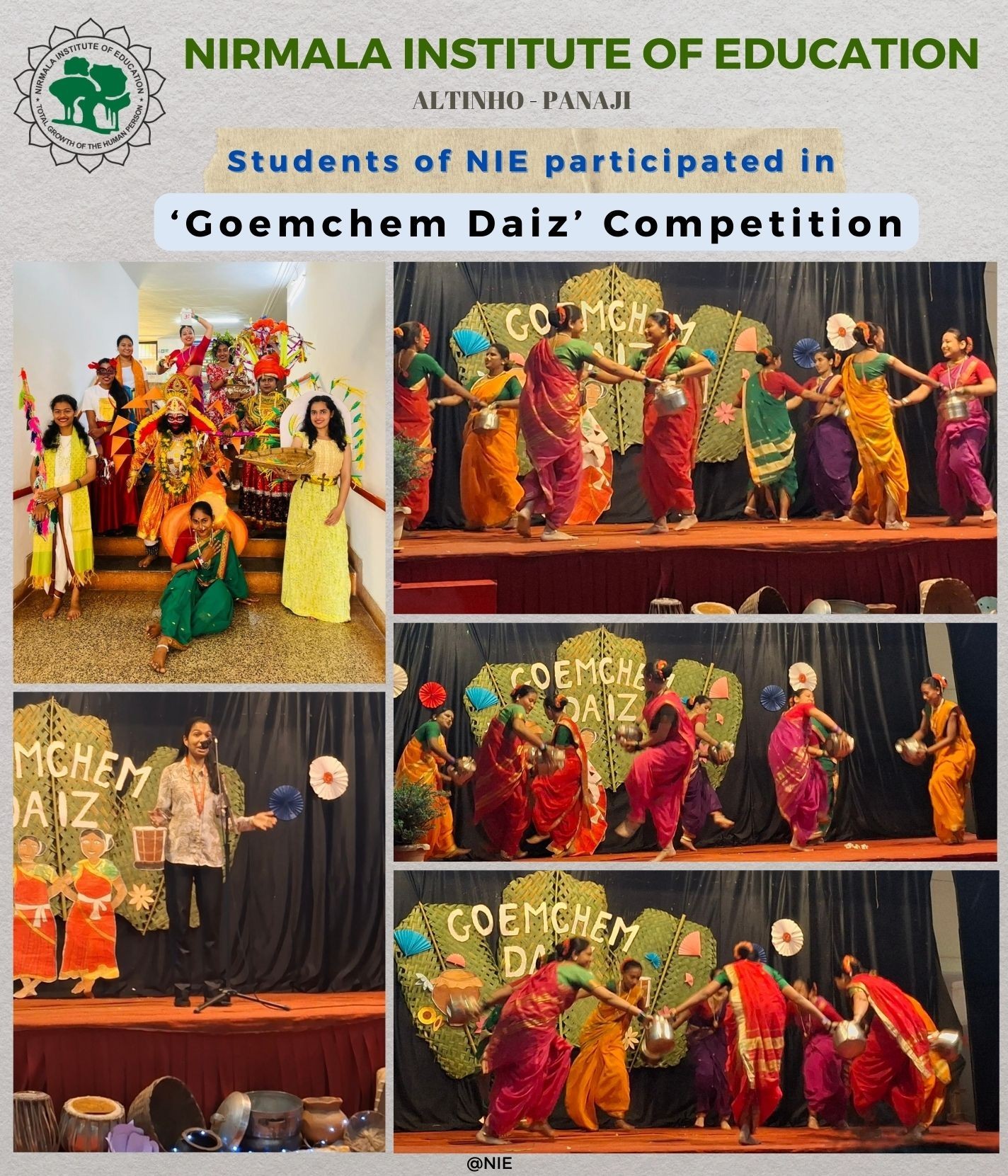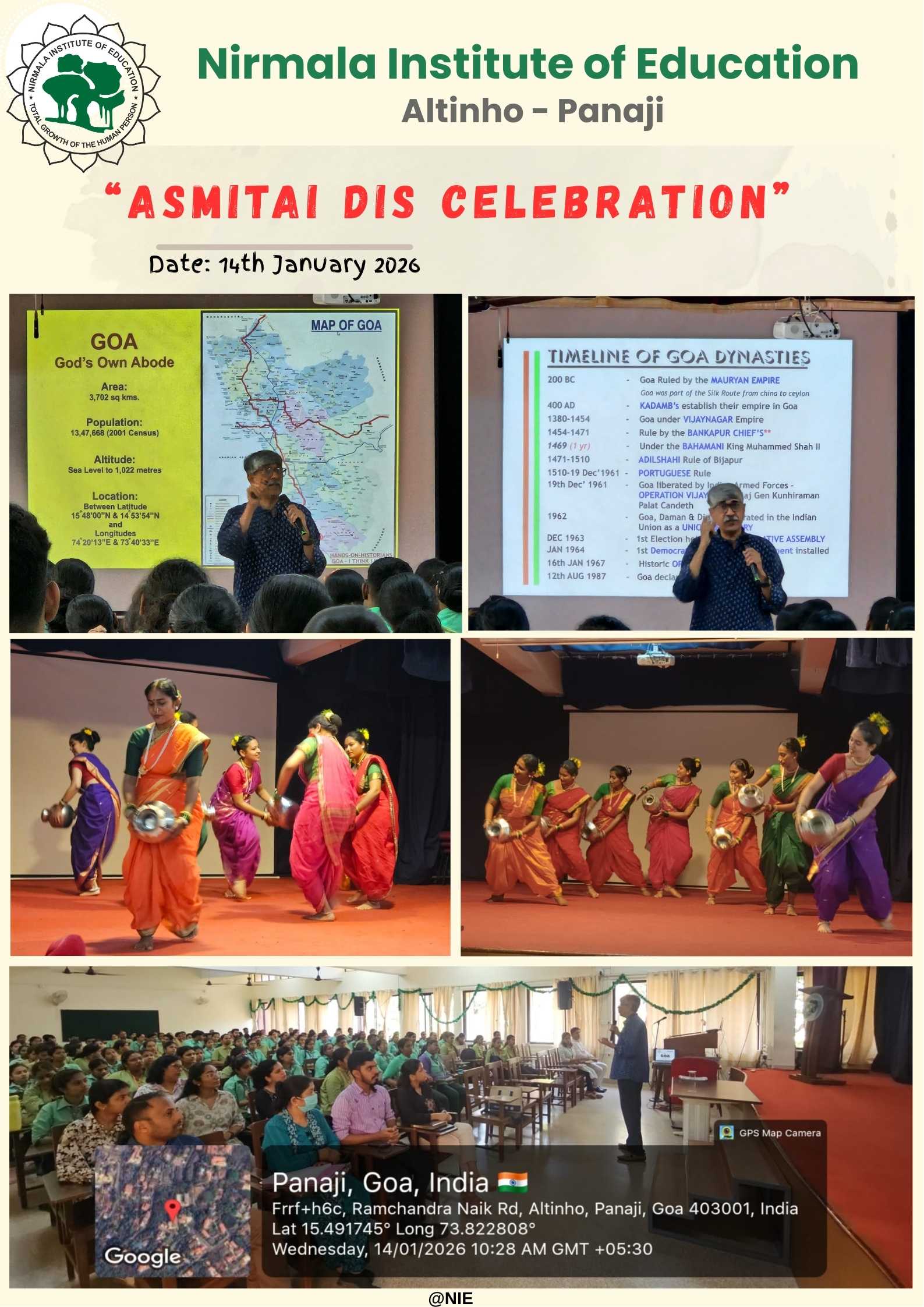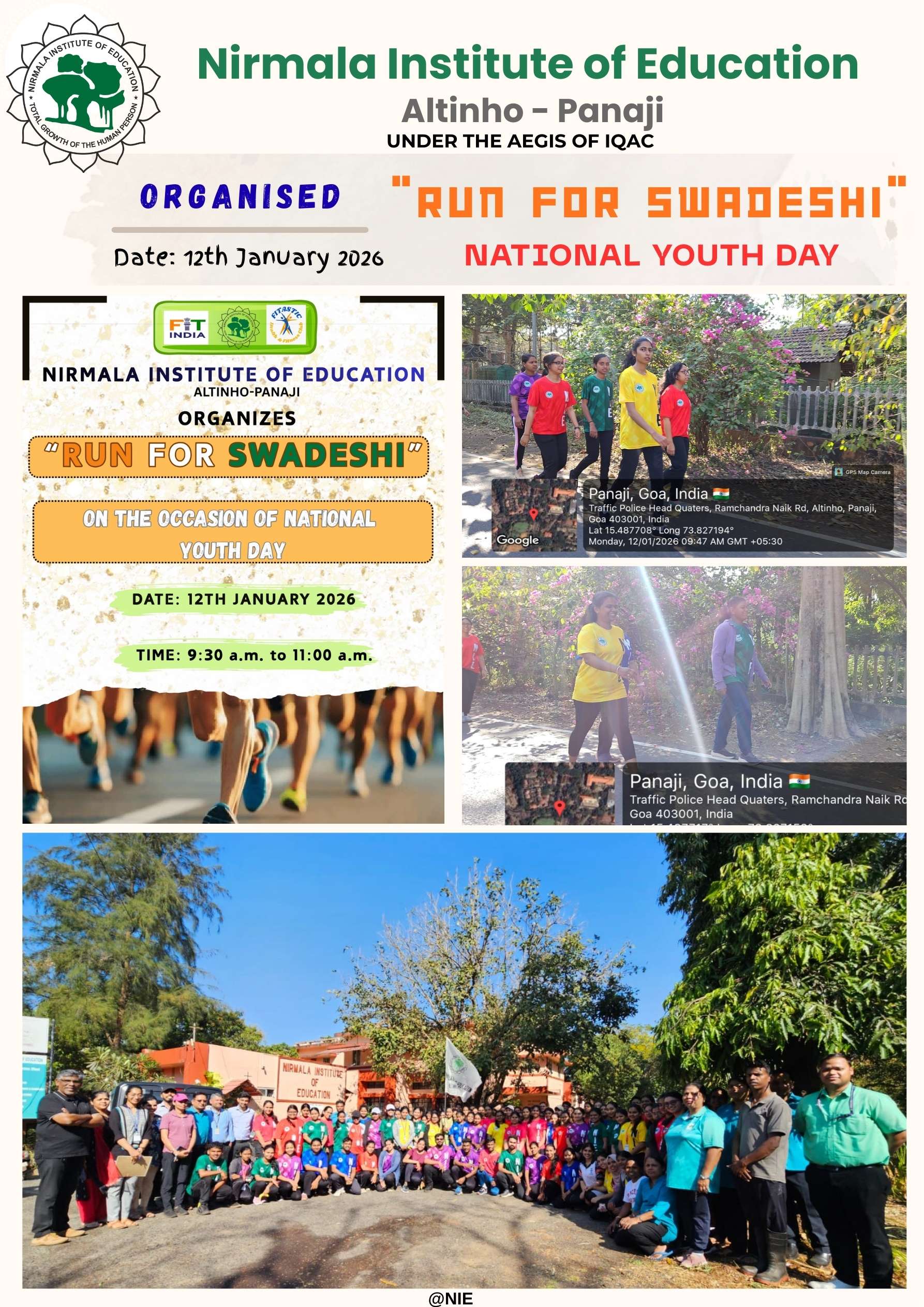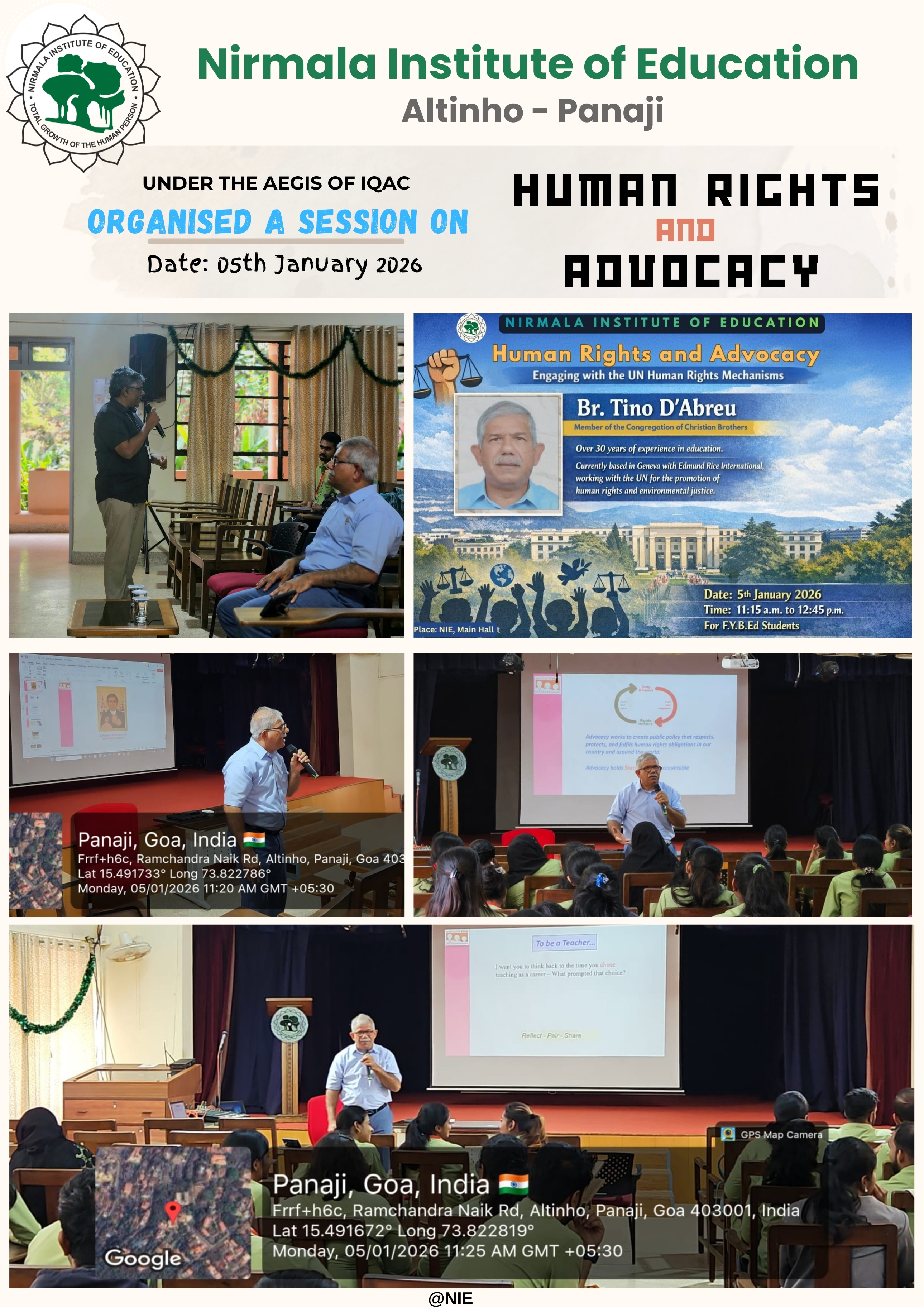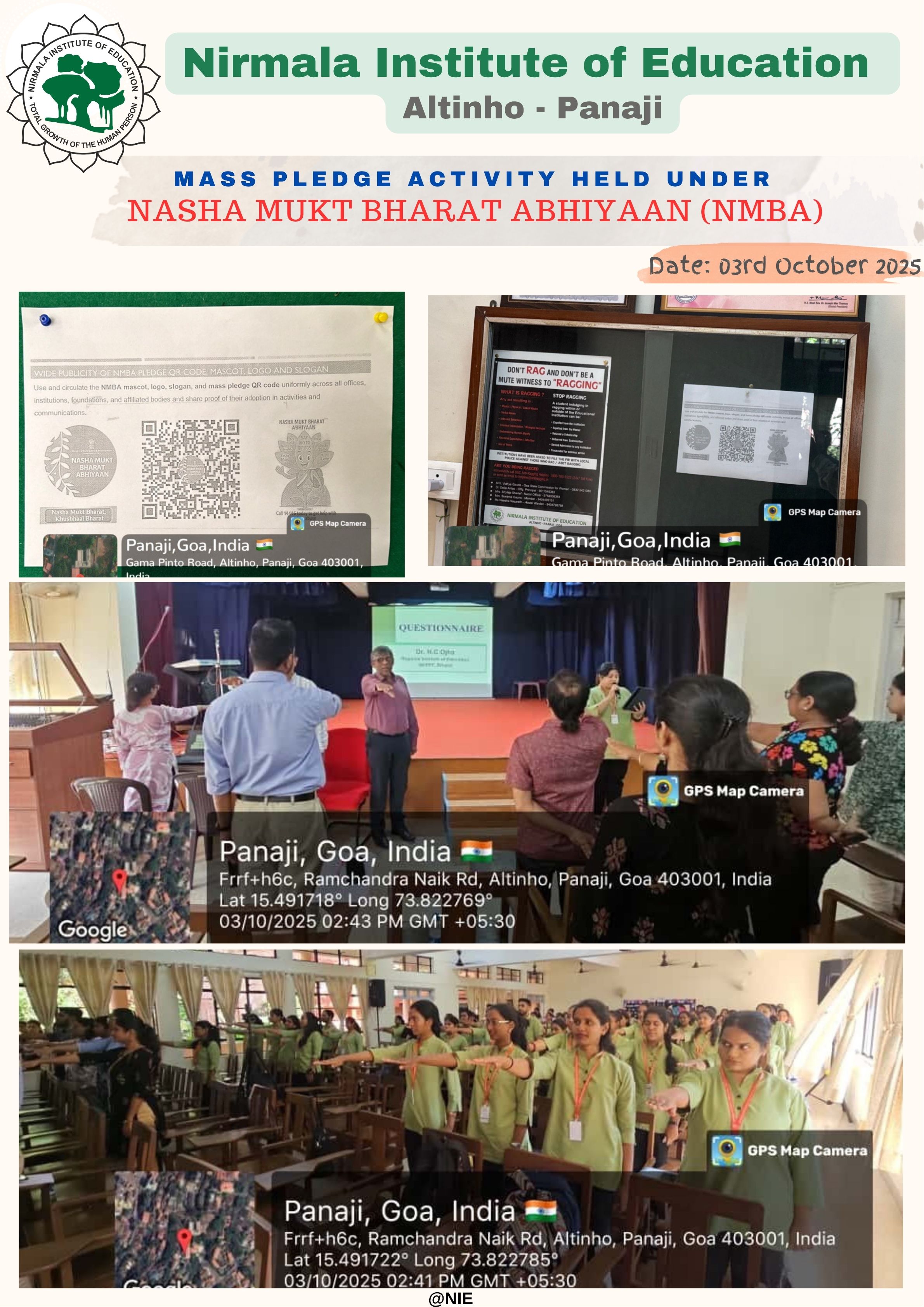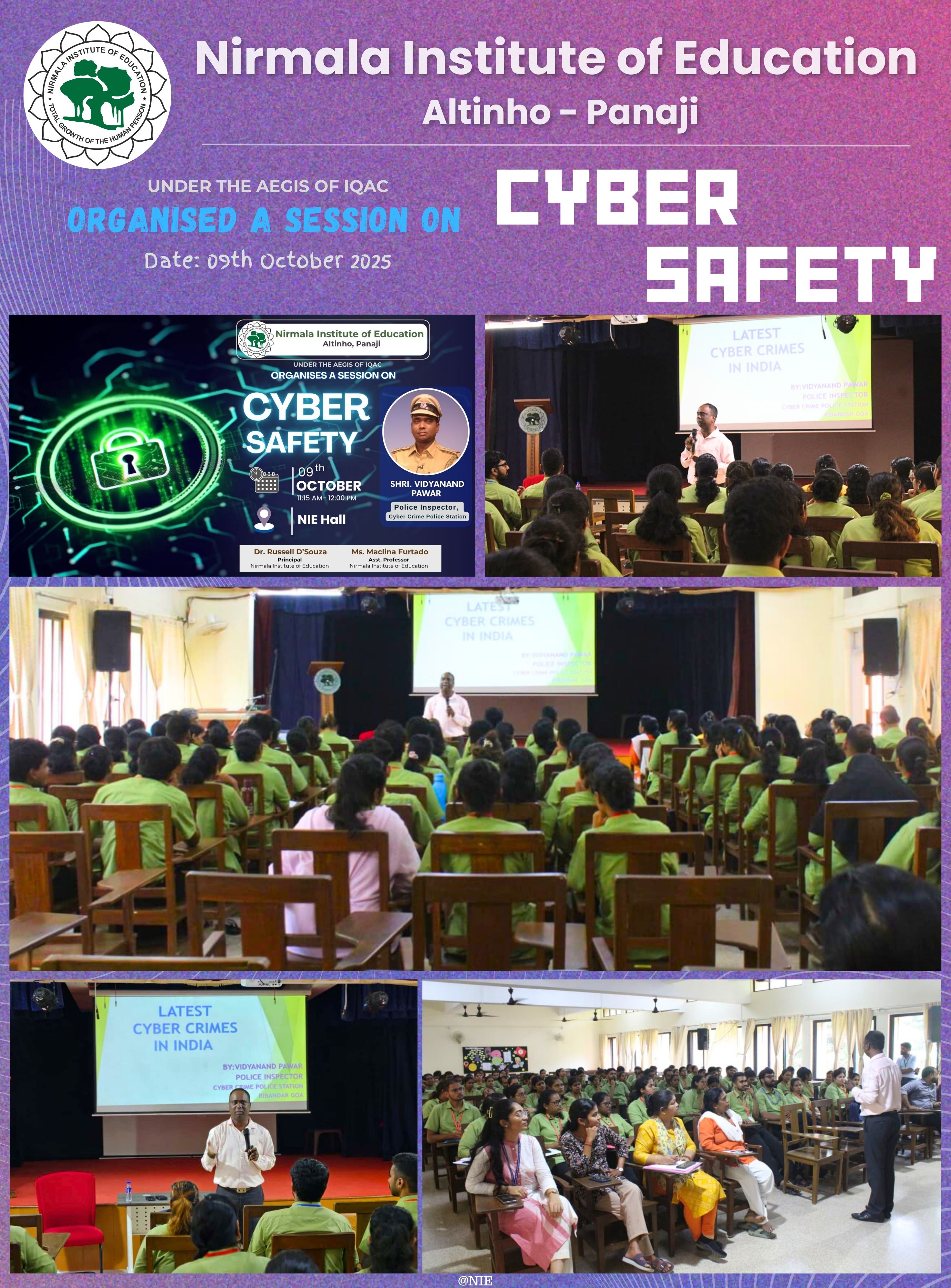Date
Project Goa
How it all began
The 'Project Goa' concept was first tabled at the N.I.E. Staff Meeting in 2000. At this meeting Ms. Sharmila Veloso, our former English Methodology Lecturer, shared what she did as an English Project, in her English, Special Methods group. Each group researched one aspect of Goan culture and then made a presentation of the completed project to their peers. This idea struck such a deep chord within all of us that we immediately adopted it as a whole college project. Thus was born ‘Project Goa’.
Objectives of Project Goa
The objectives of the project emerged as a form of protest against people trampling on the self-respect of our State, Goa. We needed to confront and challenge the tourism-brochure view portrayed about Goa and Goans. We believe that very few Goans know and understand the breadth and depth of their culture. With more and more people migrating from other states and making Goa their home, it is imperative that they too understand more about the Goan psyche and its way-of-life. We thought that the best way to propagate this idea was through the teacher-trainees we coach. Our trainees would then serve as the torch bearers of Goan thought and culture wherever they were placed. The Objectives of Project Goa thus are:
- to inculcate a sense of rootedness among Goans,
- to inculcate a sensitivity to and respect for everything that belongs to the culture of the State of Goa.
- to see Goa in the Indian context, to visualize our role in strengthening the National fabric.
- to document by way of a 'report' their research, which will serve as a reference source for future teacher-trainees studying at the Nirmala Institute of Education.
The Dynamics of Project Goa
At the beginning of the academic year the teacher-trainees have a talents-display afternoon. During this presentation the entire teaching faculty carefully observe and note the strengths and talents of each trainee. Several months later, at another faculty meeting, topics for the Project Goa are discussed. The faculty then volunteer as to which topics they will pursue and convert into a viable project. The list of trainees’ talents are now consulted and they are allotted to the different groups according to the topics decided upon for that particular year. In the past, some of the topics touched upon have been: Song & Dance, Manos, Fishing, Salt Pans, Mangroves, Impact of tourism on Goan lifestyles, Medicinal plants, Balcão, Natural Springs, Sacred Groves, Cuisine, World-famous Goan Personalities, Clothing, and the like. However, these topics can never be addressed with the same comprehensiveness that a ‘research’ project requires. This is because all the requirements of the B. Ed. Programme must be adhered to – and that by itself is formidable!
The Outcomes of Project Goa
The Project has always generated among the teacher-trainees and faculty a lot of excitement and activity. The activities undertaken can be labelled as, ‘things to know’, ‘things to do’ and ‘things to value’. These outcomes are realised by the fact that Project Goa requires trainees to: plan, do field work (research or data-gathering), evaluate the data and finally, publish the results of their ‘search’. ‘Publishing’ requires that each group demonstrate what they have re-searched in an innovative and tangible way. This invariably takes the form of skits, plays, demonstrations, poster displays and reports. However, all this is done without sacrificing any of the other curriculum requirements. So the effort, amount of work and commitment of the trainees is unimaginable!
At the end of it all the teacher-trainee learns about team-work, problem-solving, cooperative learning, organisational and communication skills. Project Goa thus equips the future teacher with valuable life-skills while providing them with a wholesome view about Goan culture.
Dr. Denzil Martins

